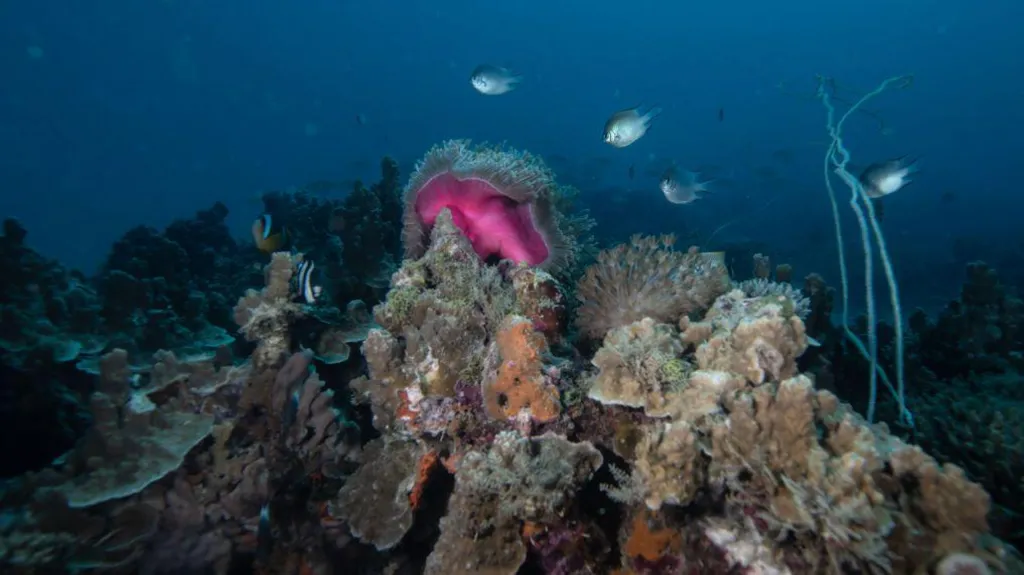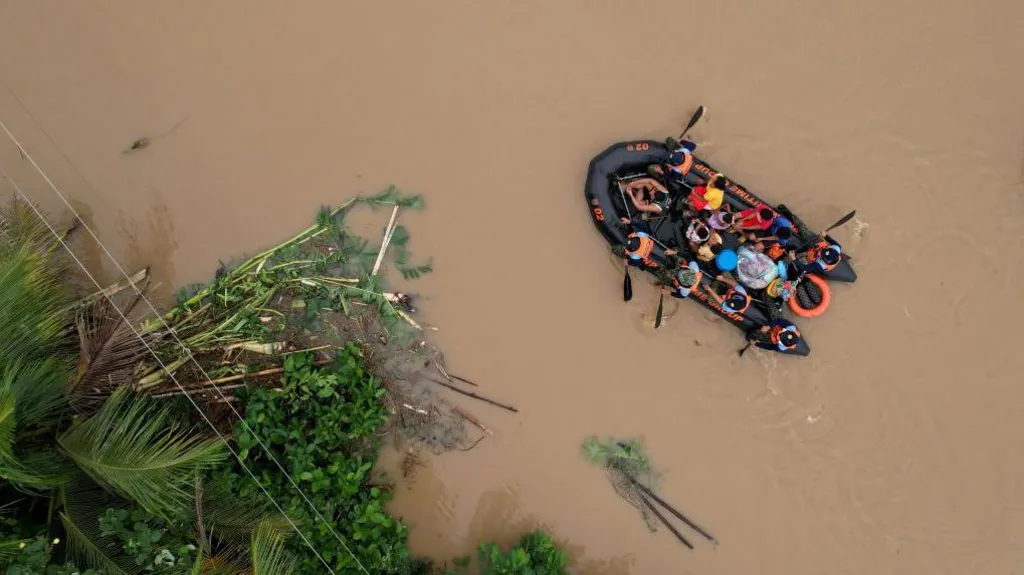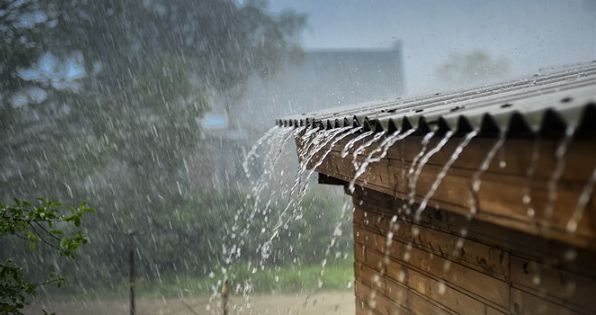The sustainable tourism group &Beyond and non-profit organisation Africa Foundation began collaborating with islanders in September 2021 to help address some of these issues.
Underwater nurseries were created using steel-mesh tables, where coral fragments are grown to be replanted on the coral reef.
They are tended and nurtured by local divers who have been trained as conservation rangers.
It takes about two or three months for a coral colony to form and then the rangers take them to the reef.
The results so far are encouraging, with 80% coverage restored on what is called the “house reef” which surrounds the island.
"It’s like they have grown by themselves,” says conservation ranger Hija Uledi.
“We have restored the reef, and you can't tell the difference. Now they have fish around. The work is great, and many species can be seen.”
The conservationists also created artificial reefs - steel and stone structures which were placed about 3km off the island and where the conservation rangers also plant newly grown coral from the nurseries.
These are intended to help replenish marine life - which benefits fishermen and they have also become destinations for snorkellers and divers.
Dr Camilla Floros, principal scientist with Africa Foundation’s Oceans Without Borders programme, says the ongoing restoration scheme is careful to work with the right materials - learning from past mistakes around the world.
“When artificial reefs were in their infancy, people used the wrong materials such as tyres to try and create them, which is not the right approach,” she says.
The success of regeneration work around Mnemba Island is thanks to support of the local community, Dr Floros acknowledges.
“Whenever we have a new initiative, we discuss it with them, and we get their buy-in,” she says.
Atuwa Omar is one local resident who has become involved in the restoration. Before taking up a position as a conservation ranger, the 24-year-old was at home looking after her young child.
"Being a ranger in this project at Mnemba Island not only enables me to provide food for my family but also supports my son's education,” she says.
Though Ms Omar admits it has not been easy for her, as she is the only woman working on the project.
She has faced conservative attitudes from some who do not want women involved - but she says such challenges have been worth it.
The conservation groups have been working hand-in-glove with the local authorities and the seas around Mnemba were designated a protected area by the government of Zanzibar, a semi-autonomous part of Tanzania, in 2022.
This means that action can now be taken to limit the damage caused by tourists and fishermen.
Bakari Jaha, co-ordinator of Africa Foundation Zanzibar, points to the amount of tourist traffic that used to visit the house reef.
“Initially, the area faced significant pressure from tourism, with 200 boats carrying at least 400 guests entering an area of only 200 sq metres,” he says.
“To preserve the area, the government, along with &Beyond and the Africa Foundation, decided to limit the number of visitors to 80.”
In the past, visitors were charged $3 (£2.40) - this cost has now been increased to $25.
“This approach has not only enhanced environmental preservation but also increased revenue,” says Mr Jaha.
Fishing has also been suspended around the house reef as it is being restored.
“We've seen positive changes. Illegal practices, like the use of dynamite, have decreased, and fishermen have become more knowledgeable about sustainable fishing methods,” says fisherman Mshenga Ally.
The Zanzibar government says it is so encouraged by the success of the Mnemba restoration project, it is looking to expand it to other areas under threat.
“The government has identified 14 areas with undamaged reefs and others with damaged corals and we are planning to preserve them,” says Dr Makame Omar Makame, director of the Zanzibar Marine Department.
“We have placed buoys so that people are careful, understanding that fishing activities are not allowed at that place.”
The pressures on Zanzibar’s reefs mirror threats facing coral reefs around the world. Those involved in the Mnemba project say, while they cannot stop warmer sea currents, they hope their efforts will be able to help other areas under threat.
“The relationship between the sea and coral is crucial for ocean health. We've witnessed corals regenerating, even at significant depths,” says Mr Jaha.
“We are allowing sea conditions to restore the reefs to their original state.”
Source: BBC


























































